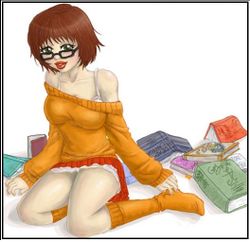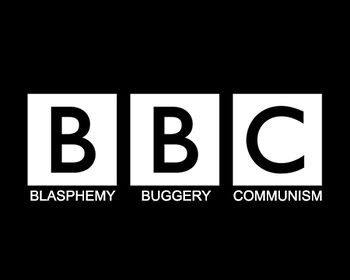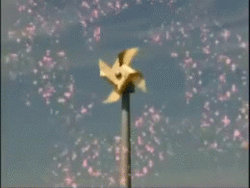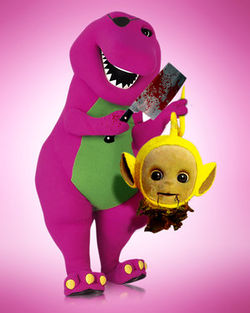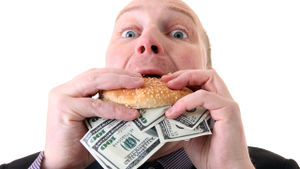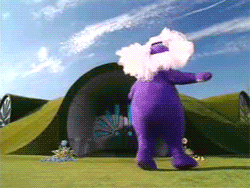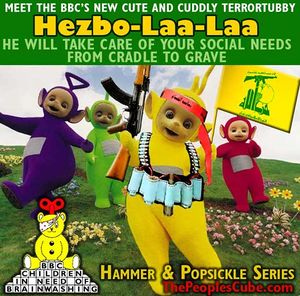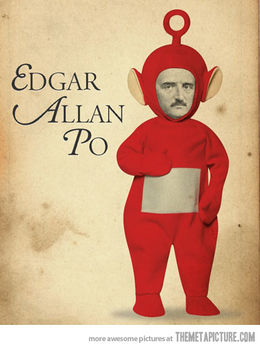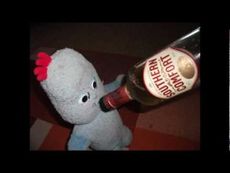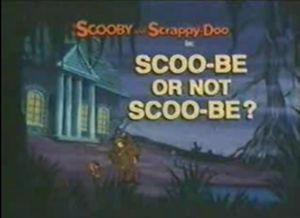User:Sog1970/stuff
In recent years BBC Worldwide has grossed over £250 million selling pre-school children's television across the globe with the explicit intention of subverting the morals of the world's toddlers by shamelessly promoting its liberal, homoerotic agenda. With the success of The Tweenies, Balamory and others it is easy to forget that this was not the Beeb's first attempt at global dominion.
In the late 1940's, in the face of Imperial decline, the BBC governor's decided to exploit the soft-power of British broadcasting excellence by commissioning ideas for children's programmes from a host of well-known cultural figures. Despite the eminence of the authors approached few of the scripts went into production: John Maynard Keynes' "Charlie, Lola and the need for monetary expansion" was felt to lack empathy for the economic dis-empowerment of four year olds, while Samuel Beckett's "Waiting for Noddy" was condemned as "meaningless clap-trap laced with unnecessary racism towards Goblins." Even world-renowned children's author Enid Blyton was not immune to disappointment with her high profile collaboration with Danish theoretical Physicist, Professor Nils Bohr, ("The Secret Seven and the Mystery of Quantum Uncertainty") considered "so lacking in plot as to be incoherent", and her joint-effort with pioneering American Psychologist, Dr. Timothy Leary ("Five go mad on Mescaline") found to be "A positive menace to the morals of children everywhere."
Only three of the original twelve series were completed. Perhaps the most critically acclaimed of the three was Dylan Thomas's heart-wrenching account of Tellytubbies forced to spend 12 hours a day excavating custard for a merciless mine-owner in the ravaged Welsh industrial town of Pant-y-Hôs. Well regarded across the Atlantic, In the Night Garden was created by ex-patriot American author and feminist Ernest Hemingway. The series portrayed Iggle Piggle's battle against suicidal inclinations following the break-down of his relationship with Makka Pakka, initially by involving himself in the vicious war between the Wottingers and Haa-foos and later by plunging into a doomed love affair with syphilitic Nurse Upsy Daisy in a filthy field hospital. But without doubt the most frequently repeated of these series across the globe was the animated series "Scoobie-Doo, pray where art thou?", the script of which was reputedly dictated to psychic medium Doris Bulschidt by the spirit of Will.i.am Shakespeare.
Dylan Thomas' Tellytubbies[edit | edit source]
Over the hills, the dust-dark, dusk-dark hills,
and far away,Stooped, sore of knee, eyes red with lungs a-fire
Teletubbies come out to play.The first emerges,
Blue with cold despite the heat of the Earth's bowels.
He carries his dead mother's handbag
And waits for Tuberculosis to reunite them.The second follows,
Yellow with jaundice Doctor Prys could cure
If three Guineas could be spared for his fee.The third joins them,
Green with envy of the mine-owner,
Portly Grosvenor,
Flabby Grosvenor,
Cuckolded and venial.Four Teletubbies are counted,
Bosom-screened,
Cards punched,
Shift over,
Into the giggling sunlight that laughs at their pain.
A steel pipe rises from stunted, runted grass
Brown and bent.
Flaccid and powerless.
Like an old man’s member.
Never again to penetrate the leaden skies.Periscopic, his eye searches the withered horizon.
Unseen Grosvenor,
Mutters to himself.
Splutters.
Gutters like a candle soon to be extinguished.
Watches his staff escape their subterranean confinement,
And frets over Tubby-Custard hidden within their lunch pails.
His custard,
Yellow as his bile,
Cold like his soul,
More ancient than time.
He sends a lick-spittle lackey to suck the custard-powder from their clothes,
His powder stuck to their unworthy backs,
With sweat he has paid for.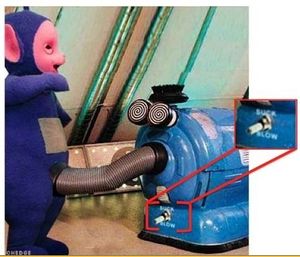
Mind unhinged by shame,
He hears his dead wife's words echo:
“Do not go mental for that crude shite”.“Time for Teletubbies,” it intones.
“Time for teletubbies! Time for Teletubbies to leave the premises!”Should Tubby souls trudge to their doom?
Not yet.
They dance and sing,
for life exists beyond colliery gates,
Squeezed between blancmange-waste and graveyard.
One eyed Grosvenor weeps to see the spirit he has failed to squeeze from them.
Who are they, these escapees from his employ?
Homeward bound for dinners of fish and chips,
Without the fish.
Perhaps without chips too.Long a friend to Dorothy,
No stranger to sailors.
Unmanned by his time below he holds his hand-bag without irony.
And holds his blue head higher,
In scorn of manlier men.
Who sees life refracted through the lens of a pint glass,
Liver greener than his skin.
Where now his Arms Park dreams?
His imagined heroics with ball and boot?
Still-born.
Twirls his blonde hair into a spiral
And giggles at a joke no one shares.
A joke never heard.
A joke in his mind alone,
invisible and silent.
Someone has amused Laa-Laa
And that person is himself.Stress of work affects the mind says Doctor Prys.
But Laa-Laa sees the future.
The mine collapsed,
Breath squeezed from his body 'neath tonnes of shale.
He sees halt landlord, Jenkins, break down the front-door
And scream to see the bodies of young boys stacked in the pantry.
Long denuded of skin,
Consumed by mice and Laa-Laa.
The most Divine Comedy.
Red Po,
Hankers for Stalin,
Dreams of Grosvenor dangling from a tree,
Guts spilled crimson on tainted soil.Po,
Red Po,
Hankers for revolution as he hankers for sausage and mash.
Dreams of insurrection as he dreams of Dipsy’s wife.Ernest Hemingway's In The Night Garden[edit | edit source]
Darkness fills the spaces between looming trees.
A man, handsome and bearded, sips deeply from the last of the Cognac,
Aware of his own genius.
Will.i.am Shakespeare's "Scoobie Doo, pray where art thou?"[edit | edit source]
| “ | Scoobie Doobie Doo, where art thou? Thou hast work to do now. Scoobie Doobie Doo, where art thou? We doth have need of aid from thee now. Hie thee, Scoobie Doo, I see thou, Pretending thou hast a sliver. Foul scorn! A ninny thou be-est for I see-est The manner in which thou shake-eth and shivr -eth. Forsooth, we hath a mystery to solve, So Scoobie Doo gird thy loins! Earn some coins! Fair Scoobie Doo, Should thou come through, Thou may purchase thyself A Scoobie Snack, Verily, that's a fact ! Scoobie Doobie Doo, where art thou? Thou art ready and thou art willin' Fair befall thee Scoobie Doo I know we shall enslave that villein. |
” |
